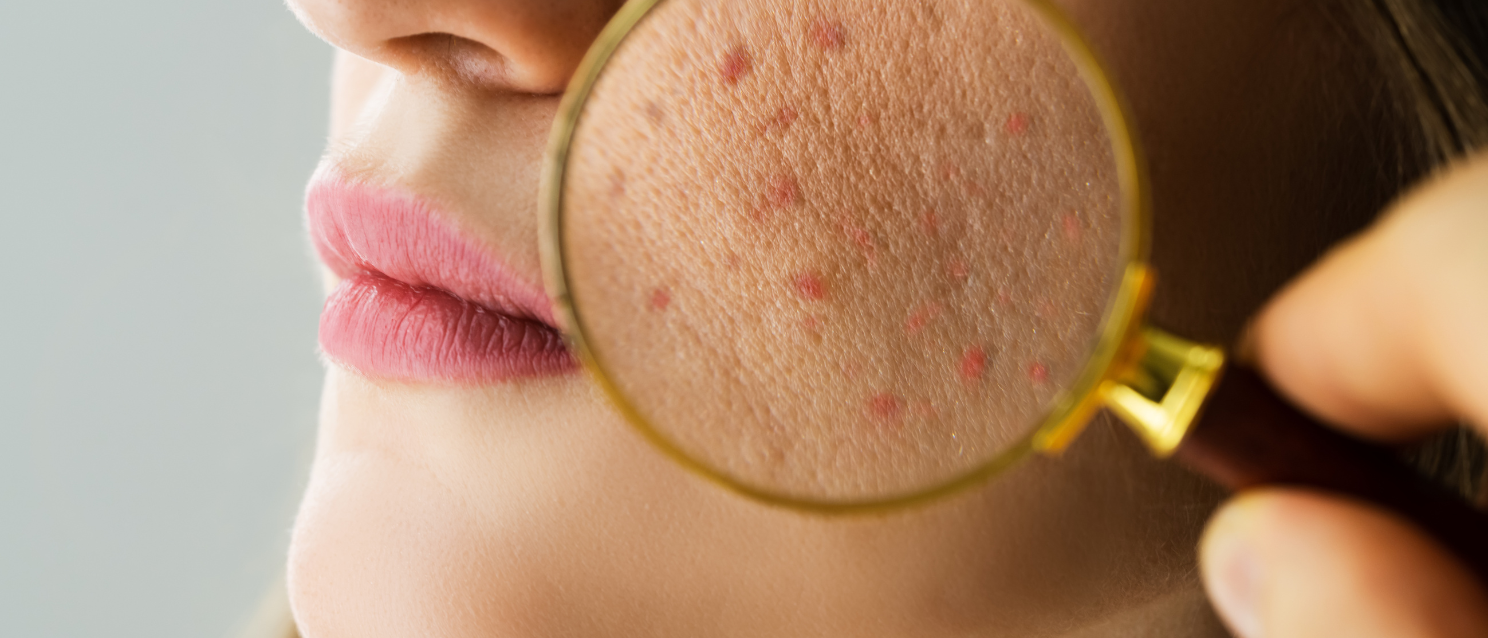Stress, Hormones and the HPA Axis
The Body's Response to Stress
We’ve all heard of “fight or flight” - the body’s response to stress. Many don’t realise however that even the regular, everyday stress that we consider normal for us, is actually inducing a full physiological response that affects every system in our bodies. This daily pressure on our systems can lead to all kinds of health issues, and yet, the lives we lead simply ARE stressful. Whether it's work pressure, relationship issues, financial worries or the hectic pace of running a family, a household, a business or a combination of all of these!
Life IS stressful, what can I do about it?
When we start to consider all the stress that we live with day to day, let alone when we have significant life events to deal with - like a death in the family, divorce, moving house or changing jobs - the sheer amount of stress can be overwhelming to even think about!
There are things we can do to reduce the impacts of stress on our health. These include
- Reducing the amount of stress in our lives where possible
- Changing our relationship to that stress, and
- Supporting the body with good nutrition and herbal supplements that counter the effects that stress has on our systems.
A combination of these strategies is going to be most effective, and we will share more on the steps you can take at the end of this article. But first, let's look at one of the most important systems related to stress and the stress response - the HPA Axis.
What is the HPA Axis and what does it have to do with Stress?
HPA stands for the Hypothalamic-Pituitary-Adrenal and describes, in a very simple way, the complex interaction between the brain and the adrenal glands and how they interact to either gear the body up for action - for fight or flight - or, to calm the body down and bring us into a state of relaxation, rest and repair.
What is the role of the Hypothalamus?
The hypothalamus is a small structure in your brain that’s about the size of an almond and can be thought of as the “control centre” for most of our hormones.
The main function of the Hypothalamus is to regulate homeostasis - to keep the human body in a constant, steady state of balance. It’s a crucial part of the brain that works with the endocrine (hormonal) system and affects a number of things that are key to human health like thirst, hunger, body temperature, sleep and emotions.
The hypothalamus coordinates activity of the autonomic nervous system which is a key part of the stress response. When so many of us are experiencing chronic, long-term stress as the norm, this creates problems.
When the hypothalamus doesn’t function properly, it throws off the proper functioning of the pituitary gland. But it doesn’t stop there because the pituitary gland controls the adrenal glands, ovaries, testes and thyroid gland. So, when hypothalamus function isn’t right, there are a lot of other things affected that are all essential to good health.
The Pituitary Gland and Stress Hormones
The pituitary gland is a pea-sized gland that sits in a bony hollow in the base of the skull, underneath the brain and behind the bridge of the nose. The pituitary gland is the link between the nervous system communication (through the hypothalamus) and the hormonal system of the body called the endocrine system.
The pituitary gland is called the 'master gland' as the hormones it produces control many different processes in the body. It senses the body's needs through a combined effort with the hypothalamus and then sends signals to different organs and glands throughout the body to regulate their function and maintain an appropriate environment.
The pituitary gland produces active hormones as well as messenger hormones which tell other glands of the body like the thyroid, ovaries, testes and adrenal glands to produce their active hormones. In the stress response, the pituitary gland plays a role in communicating through these messenger hormones to the body to initiate changes to mobilise ready for fight or flight.
Adrenal Glands, Stress and Adrenal Fatigue
The adrenal glands might be a part of the HPA axis, but they are located a long way from the hypothalamus and pituitary gland. In fact, they sit just above your kidneys, which are in the middle of your lower back area.
The adrenal glands secrete different hormones which act as 'chemical messengers'. These hormones travel in the bloodstream and act on various body tissues allowing them to function.
In response to stressors in our life, our hypothalamus communicates to the pituitary gland to send a message to the adrenals, getting them to spring into action to protect the body by activating the fight or flight response.
The adrenals spring into action and begin to secrete all the necessary hormones and chemicals to gear the body up for action. These hormones include adrenaline, noradrenaline and cortisol.
The health of the adrenal glands will determine how effectively they create the stress response AND, importantly how effectively they pull you out of stress. Remember we don’t want to stay in a prolonged state of stress and need to come back to relaxation so our body can rest and digest, repair and renew to stay healthy.
On a normal day the adrenal glands produce around 20mgs of cortisol but during times of stress they can produce around 200mgs – that’s 10 times as much! Imagine in your current job, whatever that looks like, that you were given 10 times the work load... how long before you would get tired, fatigued, exhausted and then burnt out?
You may have heard of “adrenal fatigue” and this is what it means!
One of the most important roles of the adrenals is to produce the hormone cortisol which plays a major role in creating the physiological stress response. Cortisol also has another lesser known purpose - it’s a very powerful anti-inflammatory chemical precursor.
Many people are prescribed daily some form of steroid in the form of cortisone cream, maybe for dermatitis, a cortisone injection into a painful or injured joint or oral steroids for inflammatory conditions. These are all forms of powerful anti-inflammatory steroid medicines, but the crazy thing is, we also produce our own steroid medicines. The cortisol our adrenals produce is converted to cortisone.. yes, the same cortisone in the injections, tablets and creams. This is the way our body dowses the flames of inflammation in our body, whether that’s from injury, allergens, or stress.
If our adrenals are fatigued from overuse, or in other words they’ve been working 10 times as hard as they should be for months, years or maybe even decades, they may not be able to produce optimal amounts of our own anti-inflammatory chemical cortisone.
So how do we nourish the adrenals and support the HPA axis for optimal health?
There are many herbs, nutrients, medications and strategies that can help your adrenals to recover from this overuse, but before we get into that it is vitally important to become aware of your adrenal health.
Your symptoms are your body’s language communicating to you that changes are needed to bring you back to a healthy balance. You can have tests to measure your hormone levels if you are concerned, and this can be a good start. With the adrenal glands the thing that depletes them the most is stress and so this is why we have explained this in so much detail. Without a willingness to address the stress in your life, you’ll have limited results from other interventions.
Here are some key steps you can take to support your adrenal health and recover from the impacts of long term stress and adrenal fatigue.
Reduce your Stress Levels
By making the necessary changes in our life we can take the burden off our adrenal glands. This might mean making changes.. big changes in your life. It might involve seeking personal counselling, marriage counselling, saying no to family, setting up boundaries at work, slowing down on the social engagements, selling investments, stepping back from your role in the business, changing jobs....
It’s not always that easy, we know! Seeing a counsellor or Hypnotherapist can be an effective way to help you change lifelong habits and addictive behaviours related to dealing with stressful life situations.
Change your Relationship to Stress
If the stressor cannot be changed easily then we must change our relationship to the stressor. This is what practicing meditation and mindfulness will allow you to do - without changing jobs, relationships or other situations, it enables you to change your perception and your reaction to these things. Imagine that once stressful aspect of your life no longer triggering a stressful response and giving your HPA axis and adrenal glands a day off?
In our Stress Reduction Course, you’ll learn how stress impacts your body on a physiological and psychological level, and how meditation has the inverse effect. Eddie Enever guides participants through a variety of meditation styles and techniques. Integrating this practice into your daily life can have huge benefits for not only your adrenals, but your overall health and wellbeing.
Nourish the Adrenals Back to Good Health with Natural Remedies
While you are reducing your levels of stress and changing how you manage stress, you are also creating the optimal internal environment that allows complementary herbs, nutrients, medication and other natural strategies to do what they need to do – bring the body back into balance.
This is not a quick fix. Nourishing the adrenals back to full health can take 6-24 months depending on the individual and the amount of depletion to their adrenals. You can find out more about hormone testing and book an appointment with Lesley Oakes here to get the right hormonal support for your specific situation.
The human body is complex and the HPA Axis is just one system impacted by the ever growing stress levels in our modern lives. Understanding the connection between stress and your physical health is just the beginning. What kind of impact is stress having on your health?
Edward Enever
Adv.Dip. (Nat)
Edward's main area of interest is in chronic disease, particularly people with a diagnosis of cancer. After defeating cancer three times, Edward now uses his skills and experience to guide patients through their journey with cancer and other chronic illnesses.










